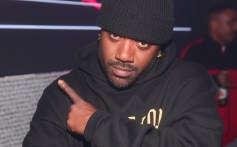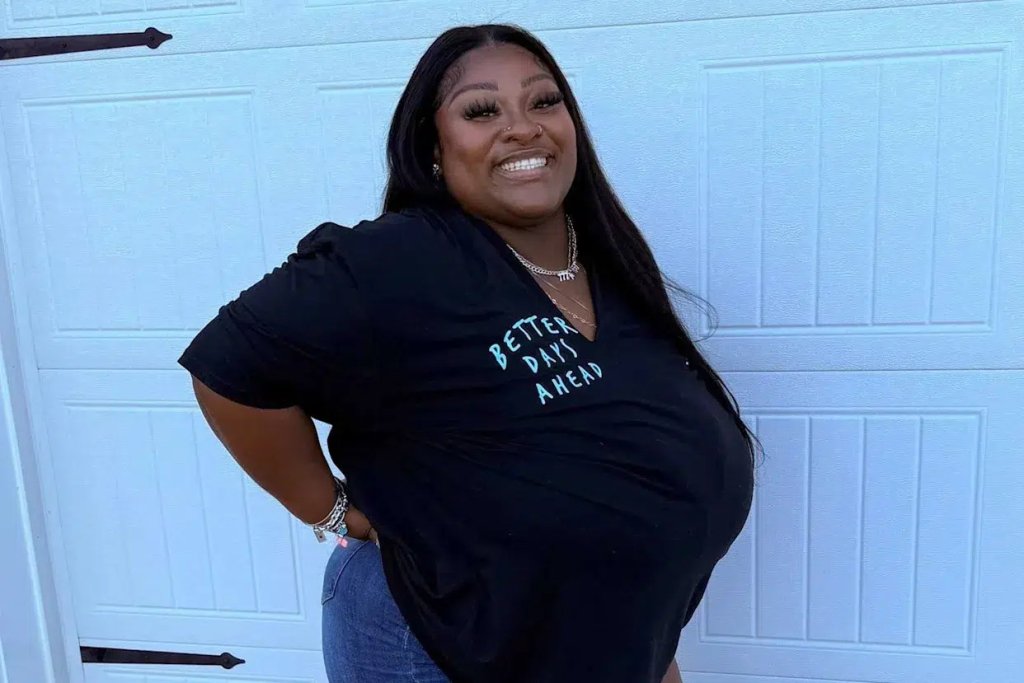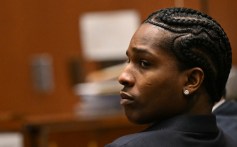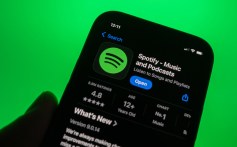Lawsuit
Page: 3
Trending on Billboard
ABKCO, a music company that owns The Rolling Stones‘ early catalog, has brought a lawsuit against Behr Paint over an Instagram advertisement that allegedly used an unlicensed version of the band’s “Paint It, Black,” which ABKCO calls “one of the most valuable copyrights in the history of popular music.”
The copyright infringement case, filed on Wednesday (Nov. 12) in federal court, centers on a 2022 Instagram ad for Behr that showed a person spray-painting furniture while “Paint It, Black” played in the background. ABKCO claims Behr didn’t pay for the track.
Related
While individual social media users can soundtrack their videos for free with songs covered by blanket licenses, companies are required to buy so-called sync licenses for music in commercial advertisements. ABKCO’s lawsuit says it regularly sells sync licenses for “Paint It, Black” — and collects fees ranging from the hundreds of thousands to millions of dollars for the song, which hit No. 1 on the Billboard Hot 100 in 1966.
“Behr’s commercial use of the ABKCO recording has forced a business association upon ABKCO that has harmed its ability to license the ABKCO recording to Behr’s competitors that would pay for the use of the ABKCO recording,” writes lawyer Benjamin Akley of Pryor Cashman. “Clearly, the ABKCO recording is not only iconic, it has unique and particular value to a paint company seeking to promote its paint products.”
According to the lawsuit, ABKCO didn’t learn about the 2022 ad until this past summer. ABKCO’s attorneys allegedly notified Behr, leading the paint company to take down the video, though the company “was unwilling to engage in further dialogue concerning its unauthorized use,” the lawsuit claims.
Related
ABKCO claims Behr is a “sophisticated, multi-billion-dollar corporation” that knows the rules around sync licenses, yet it “inexplicably” chose not to follow those rules here. Now, the lawsuit is seeking financial penalties for Behr’s alleged copyright infringement.
“As a result of the aforementioned acts of infringement, ABKCO has suffered significant damages,” reads the complaint.
Reps for Behr did not immediately return a request for comment on the lawsuit on Thursday (Nov. 13).
Trending on Billboard
Ray J is bringing a bombshell countersuit against Kim Kardashian and Kris Jenner, accusing them of intentionally releasing the infamous sex tape with him that launched Kim’s career — and then “peddling the false story” that it was leaked.
A month after the mother and daughter pair sued the singer for defamation over his allegation that they were facing a criminal racketeering investigation, Ray J hit back hard — claiming to reveal the true backstory behind his and Kardashian’s legendary sex tape.
Related
“Mother and daughter have spent two decades peddling the false story that the sex tape that Kardashian filmed [Ray J] was leaked against her will,” writes Ray J’s attorney, Howard King, in a countersuit submitted in Los Angeles court Thursday (Nov. 13) and obtained by Billboard. “They are furious that Norwood no longer wants to play along with their tall tale.”
The reality, Ray J claims, is that Kardashian and Jenner arranged the entire thing, doing so after seeing how the non-consensual release of Paris Hilton’s sextape had led to “meteoric international attention” for her. “Kardashian aspired to even greater fame,” Ray J says.
In a statement to Billboard, Kardashian and Jenner’s attorney, Alex Spiro, fired back at Ray J’s claims: “After realizing he is losing the case and losing his way, this disjointed rambling distraction is not intimidating anyone. Ray J will lose this frivolous case too.”
According to the lawsuit, after signing a deal with the porn company Vivid Entertainment, Jenner and Kardashian agreed with the studio that they would file “a bogus lawsuit” against Vivid claiming the leak was non-consensual “to create buzz ahead of the tape’s release.” The case was actually filed and later settled, but he says it was all a ruse.
Related
“These were lies,” Ray J’s lawyers write. “Vivid and Kardashian ‘leaked’ to TMZ that they ‘settled’ for $5 million. There was no such settlement.”
Such allegations have been made in the past, including by journalist Ian Halperin in his 2016 book Kardashian Dynasty, in which he claimed that the family had been involved in the leak. But Jenner and Kardashian have steadfastly denied the allegation ever since.
Ray J’s case comes in the form of a breach of contract lawsuit — claiming that Jenner and Kardashian violated a settlement deal they struck with him in 2021 over statements about the sex tape.
During a 2021 episode of The Kardashians, the mother and daughter “falsely accused” him of “sexually assaulting Kardashian while she was asleep, releasing revenge porn, and extortion,” the lawsuit says. After Ray J “initiated legal proceedings” over those statements, the Kardashians allegedly agreed to a settlement that would pay him $6 million and ban any further mention of the tape on the show.
But then the Kardashians violated the deal “almost immediately,” repeatedly discussing the tape during the following season of The Kardashians, the lawsuit reads. When Ray J’s lawyers raised the issue, he says they told him that the settlement only covered the earlier season of the show.
Related
With the two sides headed for a dispute in private arbitration, Ray J says Kardashian and Jenner instead chose to file their “meritless lawsuit” to “exact retribution” on him. “Norwood will not allow Kardashian and Jenner to weaponize the judicial system, shirk their contractual obligations, and sacrifice him on the altar of fame,” the lawsuit reads.
The original lawsuit, filed last month, came a week after Ray J claimed on a social media livestream that federal authorities were investigating the Kardashian clan under the Racketeering Influence and Corrupt Organizations (RICO) Act — the same charges filed against Sean “Diddy” Combs. “The feds is coming,” he said at one point, before adding: “It’s worse than Diddy.”
“Ray J’s public statements are blatantly false,” Spiro wrote in the Oct. 1 lawsuit. “No such federal investigation exists; no law enforcement agency has initiated any criminal proceedings or investigations related to racketeering charges against Ms. Kardashian or Ms. Jenner; and no credible evidence whatsoever supports these inflammatory allegations.”
The lawsuit claimed that Ray J’s comments were just “the latest salvo in a deliberate and malicious campaign of harassment and defamation intended to defame plaintiffs while reviving his own fading notoriety.”
Trending on Billboard
A new lawsuit claims Drake’s ”What Did I Miss?” music video ripped off the work of an Italian photographer — and, in a strange twist, that the rapper was intentionally trying to connect his feud with Kendrick Lamar to a controversial Balenciaga campaign.
The copyright infringement complaint, filed against Drake (Aubrey Graham) on Wednesday (Nov. 12) in federal court, alleges a key sequence in the “What Did I Miss?” video lifts from a photograph in Gabriele Galimberti’s 2020 book The Ameriguns. Both Galimberti’s photo and the scene in question show men standing outside houses, surrounded by firearms laid out in parallel around swimming pools.
Related
Galimberti is a photographer with National Geographic, though he is perhaps best known for shooting a notorious 2022 Balenciaga campaign that portrayed children with sexually explicit objects. The campaign drew a huge backlash, with consumers accusing the fashion house and Galimberti of glorifying pedophilia.
Wednesday’s lawsuit draws a direct line between the Balenciaga controversy and “What Did I Miss?,” in which Drake addressed the aftermath of his rap battle with Lamar. That feud ended with Lamar calling Drake a “certified pedophile” on the chart-topping diss track “Not Like Us,” leading Drake to sue Universal Music Group (UMG) for defamation.
“Plaintiff was ultimately publicly vindicated in a defamation lawsuit abroad related to the false accusations arising from the Balenciaga advertisement,” writes Galimberti’s attorney. “Given Kendrick Lamar’s lyrics…calling defendant Graham a pedophile and defendant Graham’s now dismissed defamation lawsuit, on information and belief, defendant Graham sought to imply that he, like plaintiff, would be publicly exonerated.”
Related
Drake’s defamation lawsuit was dismissed last month, with a federal judge ruling that lyrics in rap battles are hyperbole and not meant to imply facts. Drake is now appealing to revive the case against UMG, which owns both Lamar’s label Interscope Records and his label, Republic Records.
Republic and UMG are both defendants in Galimberti’s lawsuit as well, along with Drake and his company OVO Sounds. Galimberti is seeking financial damages for what he describes as “both an egregious violation of federal law and an affront to plaintiff, his livelihood, his legacy and to photographers everywhere.”
“Plaintiff is a serious professional, addressing serious themes,” reads the complaint. “His work hangs in galleries, museums, graces serious print literature, and his career depends upon the respect and admiration of dealers, collectors and critics of contemporary and documentary art. By the forced and unauthorized association of his work with the infringing video, the integrity of his work and his reputation as a photographer has been damaged.”
Reps for Drake and UMG did not immediately return requests for comment on the lawsuit.
“What Did I Miss?” debuted at No. 2 on the Billboard Hot 100 in July, and hit No. 1 on both Hot R&B/Hip-Hop Songs and Rhythmic Airplay, extending multiple Billboard chart records for the rapper.
Trending on Billboard
In the wake of Calvin Harris’ bombshell fraud claims against business manager Thomas St. John, fellow star DJ Eric Prydz has brought a lawsuit alleging the financial adviser stole $269,000 from his accounts.
St. John, the head of beleaguered entertainment industry accounting firm Thomas St. John Group, was accused in arbitration this summer of secretly funneling $22 million from Harris’ accounts into a real estate side venture. St. John denies the claims, maintaining that the Scottish DJ was an informed and willing investor in the project.
Related
Now, Prydz — another titan of the EDM industry — says St. John exploited his account access to steal money. The Swedish DJ, who has been a client of St. John’s since 2012, claims in an Oct. 28 breach of contract and fraud lawsuit that St. John paid himself $269,000 in commissions for services Prydz says he never asked for or authorized.
“Thomas St. John is a professional financial advisor who is supposed to be trustworthy and reliable, and who should be acting in the best interests of his client,” wrote Prydz’s attorney, Carla Wirtschafter of Reed Smith. “TSJ, however, proved to be none of those things. Instead, he is a fraud who not only abuses the trust of his clients, he takes money from them without their knowledge or authorization for his personal use and benefit.”
The lawsuit claims Prydz decided to fire St. John in September after discovering that the manager had taken $219,000 in unearned commissions on top of his regular 5% fee. St. John allegedly agreed to stay on through the end of October to finish a tax return for Prydz, though this process quickly turned contentious.
Prydz claims St. John tried to “extort” an additional $150,000 out of him and refused to complete the tax return otherwise, which Prydz says he refused. But according to the lawsuit, St. John unilaterally took another $50,000 out of Prydz’s accounts to cover part of this improper fee.
Related
The legal complaint alleges that after all this, St. John never filed the tax return as promised — and that he’s now refusing to turn over the necessary documentation to Prydz’s new financial advisers.
“As a direct result of TSJ’s malicious conduct to hold Prydz’s financial documents hostage, Prydz has been unable to complete and file the now past due tax forms,” the lawsuit reads.
Prydz is seeking a court order for St. John to release his financial records and return the allegedly stolen commissions. The DJ also wants additional monetary damages recouping St. John’s 5% fee, claiming the adviser did “little or no work” to earn those payments.
Reps for St. John did not immediately return a request for comment on Wednesday (Nov. 12).
Prydz’s lawsuit is just the latest legal woe for St. John, whose U.S. business arm has been in bankruptcy since March. The manager’s real estate project, a Hollywood development called CMNTY Culture Campus, is the subject of claims from both Harris and songwriter Philip Lawrence.
Related
A deep dive by Billboard last month reported that CMNTY Culture — originally envisioned as a recording studio and creative office complex — was born out of the St. John-advised, $90 million sale in 2020 of Lawrence’s catalog of Bruno Mars writing credits.
Following that deal, Lawrence opted to park some of the proceeds in a real estate venture to lessen his taxes on the sale and brought on St. John as a partner. But Lawrence’s finances soon dried up, and St. John ended up buying out the songwriter and helming the project himself.
It was at this point that St. John took on outside investors, including Harris. But while St. John claims Harris wanted in on CMNTY Culture, Harris alleges in his arbitration that the manager fooled him into signing investment documents without knowing what they were.
Harris now claims that his money has disappeared and that CMNTY Culture is a “complete boondoggle.” Indeed, St. John is no longer developing a recording studio and has yet to break ground on any construction, though he maintains that the project is still on track for success under reworked plans for a residential apartment complex.
The Harris action is still pending before a private arbitrator. Meanwhile, Lawrence has declared bankruptcy, while his estate trustee recently accused St. John in court papers of violating their fiduciary relationship during the CMNTY Culture partnership.
Trending on Billboard
There’s a new front in the nasty legal war between hip-hop producer Madlib and his longtime manager Eothen “Egon” Alapatt: The many songs recorded during their decade-long partnership.
In a lawsuit filed Tuesday (Nov. 11) against Madlib (Otis Lee Jackson Jr.), Egon asked a federal judge to decide who owns the rights to the masters created over the years at their Madicine Show label — tracks that feature Madlib’s beats under vocals by Mac Miller, Freddie Gibbs, Four Tet and others.
Related
“Jackson now claims those works as his personal property and seeks to withdraw them entirely from Madicine Show’s catalog,” writes Egon’s attorney Kenneth Freundlich. “That is not how the law works.”
In a statement to Billboard, Madlib responded to Egon’s new claims: “I trusted someone who didn’t value the art the way I do. This is a reminder that not everyone who stands beside you is standing for you. When you move with truth, you don’t have to defend yourself. Time and integrity do the talking.”
Madlib, a critically-acclaimed producer known for his work with Kanye West (now Ye) and the late MF Doom, went to court first in 2024 — accusing Egon of “rank self-dealing” and “pervasive mismanagement.” The case, filed in California state court, claimed the manager had abused his power over Madicine Show to profit at Madlib’s expense.
Egon hit back in May, filing a countersuit blasting Madlib for “having the audacity to bring this mean-spirited personal action.” In one notable claim, Egon said Madlib’s new label was interfering with music projects that legally belong to Madicine Show, including the release of a years-old recording of the late Miller that has long been rumored to be in the works.
Related
In the new case on Tuesday, Egon said he needed “immediate federal intervention” in that legal battle because of a key new development in the earlier lawsuit.
Last month, a Los Angeles judge sided with Madlib and ruled that a court-appointed receiver should oversee the corporate dissolution of Madicine Show. The ruling came over objections from Egon, who said he himself should oversee the company’s wind-down. “Defendant is not the appropriate person to oversee the dissolution process,” the judge said at the time. “The court will appoint a receiver.”
But now, weeks later, Egon says in his new lawsuit that the breakup process cannot move ahead until it’s clear who owns the company’s “most valuable assets”: its catalog of recorded music. And since copyright law is handled exclusively by federal courts, he says that decision must be made by a U.S. district judge.
“The recordings at issue were created and exploited pursuant to a licensing relationship between Jackson and Madicine Show,” Egon writes. “They remain company assets, and their ownership must be determined under the Copyright Act.”
Related
According to the lawsuit, the tracks recorded by Miller and others over Madlib’s beats were “facilitated, supervised, and produced” by Egon under a longstanding arrangement in which the company controlled them. The producer’s recent claim that “he alone owns all copyrights” is “mystifying” and legally incorrect, the suit says.
“This position ignores the parties’ mutual understanding and Alapatt’s creative, financial, and managerial contributions,” Egon’s lawyers write. “After benefiting from that arrangement, Jackson cannot revoke or withdraw those rights or claim exclusive ownership of works that were created, produced, and marketed under Madicine Show’s direction.”
Attorneys for both sides did not immediately return requests for comment on the new case.
Months after a judge told A$AP Relli that he was better off letting go of his civil lawsuit against A$AP Rocky for allegedly shooting him in 2021, he finally took heed and will be dropping his lawsuit.
According to Billboard, Relli is officially moving on from the 2021 incident as he will no longer be seeking compensation from Rocky. Relli’s lawyer, Aaron Morris, has informed Billboard that his client will be “focusing on rebuilding his life” instead of going through with the lawsuit.
The surprising development comes months after Los Angeles County Judge Randolph M. Hammock told Relli that he would be better off coming to some kind of terms with Rocky’s legal team instead of once again going through the motions of a trial and not only taking another “L” but also being left with hefty legal fees that he’d have a problem paying off.
Love Hip-Hop Wired? Get more! Join the Hip-Hop Wired Newsletter
We care about your data. See our privacy policy.
Seemingly taking heed of the level-headed advice from Judge Hammock, Relli is taking the offramp in this ordeal as his lawyer said, “The ordeal has been a nightmare for him, and the statements calling him a ‘liar’ and worse effectively eliminated his chances of a career in the industry.”
Still, though this brings an end to the civil case that Relli brought to Rocky, Relli will continue with his defamation lawsuit in which he stated that both Rocky and his lawyer, Joe Tacopina, called his lawsuit an “extortion” attempt and a “get-rich-quick-scheme.”
According to Morris, he feels his client has more stable legal grounds to stand in this particular lawsuit, saying, “He’s going to litigate the defamation action because of the damages it caused, but as to the shooting, he’s thankful he wasn’t hurt worse and is focusing on rebuilding his life.”
We’ll just have to wait and see if a jury feels the same way in his defamation case when it’s all said and done.
What do y’all think about A$AP Relli dropping one lawsuit but continuing with the other? Do you think he has a chance in his defamation case or nah? Let us know in the comments section below.
—
Photo: Getty
Brenay Kennard, a popular social media figure who amassed millions of followers, was ordered to pay $1.75 million to the ex-wife of her manager, who was married to the woman before his involvement with Kennard. Known as @lifeofbrenay across her socials, Brenay Kennard was accused of splitting up the marriage of her marriage by the ex-wife, citing criminal conversation and alienation of affection.
Raleigh outlet WRAL reports that Akira Montague, the ex-wife of Brenay Kennard’s current manager, Tim Montague, accused Kennard of seducing her husband and ending their seven-year union. Under North Carolina’s “alienation of affection” law, a spouse has the legal right to sue an individual they believe led to the end of a marriage. Ms. Montague said that the affair caused her mental anguish and took her husband away from their children.
Kennard defiantly fired back at Ms. Montague, saying that the marriage was essentially over and that the ex-wife gave her blessing for them to move forward. It was also rumored online that Kennard was married to another man during the affair.
Love Hip-Hop Wired? Get more! Join the Hip-Hop Wired Newsletter
We care about your data. See our privacy policy.
Trending on Billboard
A$AP Relli has abandoned plans to retread his shooting claims against A$AP Rocky at a second trial early next year, telling Billboard through a lawyer that he’s instead “focusing on rebuilding his life.”
Rocky (Rakim Mayers) was acquitted at a criminal trial this past February of shooting Relli (Terrell Ephron), his childhood friend and onetime A$AP Mob collaborator, in 2021. Relli brought an assault lawsuit in 2022 seeking financial damages from the star rapper over the same alleged incident.
Related
The civil case was scheduled to go to trial in January, with Relli facing a lower burden of proof than the one prosecutors failed to meet in their criminal case against Rocky. But an attorney for Relli, Aaron Morris, tells Billboard on Tuesday (Nov. 11) that his client has decided to drop the assault claims.
“At this point, he’s ready to simply move on from the shooting,” Morris said. “The ordeal has been a nightmare for him, and the statements calling him a ‘liar’ and worse effectively eliminated his chances of a career in the industry.”
Morris said his team will file court papers officially dismissing the assault lawsuit later this week. Relli is still pursuing a separate defamation lawsuit against both Rocky and his lawyer, Joe Tacopina, over press interviews in which they called the shooting claims “extortion” and a “get-rich-quick-scheme.” Relli alleges these statements harmed his reputation and career as an artist manager.
“He’s going to litigate the defamation action because of the damages it caused, but as to the shooting, he’s thankful he wasn’t hurt worse and is focusing on rebuilding his life,” says Morris.
Rocky’s reps did not immediately return a request for comment.
Rocky and Relli were involved in a now-infamous altercation near a Hollywood hotel in November 2021. Relli alleges Rocky fired a handgun at him twice during the argument, while the rapper maintains it was a prop gun filled with blanks.
Prosecutors charged Rocky with two felony assault counts in 2022. The Grammy-nominated Harlem rapper rejected a plea offer from prosecutors and went to trial, risking a maximum of 24 years in prison if convicted. Rocky’s bet ultimately paid off, with a Los Angeles jury fully acquitting him of both counts.
Trending on Billboard
A new lawsuit alleges Downtown Music Holdings threw a licensing partner under the bus as a “sacrifice” to lessen regulatory scrutiny of its controversial acquisition by Universal Music Group (UMG).
The $375 million complaint, filed on Monday (Nov. 10) in Manhattan federal court, centers on Downtown’s relationship with YouTube music provider Blast Off Media. According to the lawsuit, Downtown unlawfully ended its distribution contract with Blast Off — and destroyed an entire music catalog in the process — over concerns regarding the European Commission’s review of Downtown’s proposed $775 million merger with UMG’s Virgin Music Group.
Related
“This case exemplifies precisely the type of conduct that opponents of the UMG/Downtown acquisition warned about: a major-label-owned entity destroying an independent operator’s business when it became inconvenient, using pretextual compliance concerns as cover for bad faith economic motivations,” writes Blast Off’s lawyer, JP Kernisan of Quinn Emanuel.
In a statement provided to Billboard on Tuesday (Nov. 11), a Downtown spokesperson said the company properly terminated the Blast Off contract upon realizing that Blast Off’s music catalog was being “widely leveraged to monetize reused or unlicensed content on YouTube.”
“We will defend ourselves vigorously against these baseless and frivolous claims,” the Downtown spokesperson added.
Blast Off’s business model centers on a library of roughly 800 free backing tracks on YouTube. The company allows creators to add these songs to their videos, then runs advertisements on the content and shares music royalties with the creators. Blast Off signed a distribution deal with Downtown in August, tapping the indie music heavyweight to run point on monetizing its sound recordings and navigating YouTube’s copyright claims process.
Related
But Downtown ended the contract after little more than a month in early October amid what it said were concerns about supposed copyright infringement in videos that used Blast Off’s music. However, Blast Off alleges in Monday’s lawsuit that this was an “absurdly disproportionate” reaction to just two user-generated videos that were flagged and quickly dealt with.
“Defendants failed to identify any wrongdoing by Blast Off as opposed to by third-party content creators over whom Blast Off has no control [and] ignored Blast Offs extensive good-faith compliance efforts, including proactive identification and removal of problematic content and implementation of Al-powered monitoring systems,” reads the complaint.
Blast Off alleges that Downtown’s “true motives” in terminating the contract were tied to regulatory approval of the UMG merger; according to the complaint, Downtown needed to maintain favorable “compliance optics” to get the deal through.
“Any issues with its key platform partner YouTube — whether legitimate or not — could negatively impact the acquisition,” writes Blast Off’s counsel. “Downtown preemptively chose to sacrifice Blast Off’s rights rather than work through routine compliance matters out of an abundance of caution to protect its larger financial interests during a sensitive period.”
Related
The “catastrophic” result of all this, claims the lawsuit, is that Downtown has since delisted the entire Blast Off catalog from YouTube. This is allegedly depriving Blast Off of more than $40,000 in revenue per day — and worse, the company says, its music library now carries a “permanent stigma” and will never bounce back to its original worth.
Blast Off estimates its financial damages to be at least $375 million, citing a $250 million valuation for its catalog before the delisting. The company is accusing Downtown of fraudulent inducement and breach of contract, among a slew of other civil claims.
Downtown’s spokesperson denies all of Blast Off’s allegations and maintains that the contract termination was “appropriate and necessary” after they “determined that BlastOff Media’s content was in flagrant violation of YouTube’s terms of service.”
According to Downtown’s reps, the issues with Blast Off went far beyond just two YouTube videos, as the lawsuit claims. They say instead that Downtown determined, via a thorough review, that a significant amount of the videos incorporating Blast Off’s music were unoriginal or unlicensed, and that, in some cases, the music was embedded inaudibly, thus monetizing ineligible video content in violation of YouTube’s content policy.
“Downtown is proud to uphold the highest trust and safety standards on behalf of our clients, our partners and the broader industry,” said the company’s spokesperson. “This includes our role as one of the founders of the Music Fights Fraud Alliance, which was launched to help combat content abuse, including the parasitic exploitation exemplified by Blast Off Media.”
Trending on Billboard
Since subscribing to Spotify in 2023, Genevieve Capolongo says she’s mostly listened to “lesser-known artists” like Próxima Parada, Julia Cooper and Brusco. But she says the streamer’s recommendation tools keep serving her “mainstream, major-label tracks” by Drake, Zach Bryan and Justin Bieber.
According to her lawyers, that’s because Spotify was paid to do so.
Related
In a lawsuit filed last week, Capolongo claims the streamer’s Discovery Mode and editorial playlists amount to a “modern form of payola,” allowing labels to secretly boost their tracks with a “deceptive pay-for-play” program. She says she wouldn’t have subscribed if she knew that Spotify’s recommendations had been sold “to the highest bidder.”
The case is sometimes light on specifics, like citing unnamed “industry insiders” about alleged illicit payments or “disproportionate” rates of major-label music. Spotify, for its part, called the lawsuit “nonsense” and said it was “riddled with misunderstandings and inaccuracies.”
But it targets a program that has raised eyebrows for years — and comes at a time when Spotify has faced multiple accusations about manipulation on the platform. For more, go read our full story here.
You’re reading The Legal Beat, a weekly newsletter about music law from Billboard Pro, offering you a one-stop cheat sheet of big new cases, important rulings and all the fun stuff in between. To get the newsletter in your inbox every Tuesday, go subscribe here.
Other top stories this week…
DRAKE’S APPEAL – As Drake asks an appeals court to revive his lawsuit over Kendrick Lamar’s “Not Like Us,” I asked legal experts what his lawyers might argue — and whether it’ll work.
TAYLOR V. TRUMP? – Taylor Swift fans want her to sue the Trump administration after it used “The Fate of Ophelia” in a TikTok video. She probably could, but almost certainly won’t.
DISJOINT VENTURE – 10K Projects, the Warner-owned label founded by Elliot Grainge, is facing a lawsuit claiming it owes millions to Taz Taylor’s Internet Money Records under a joint venture.
FAST & FREE SONGS – How did New York City Mayor-elect Zohran Mamdani get clearance to use Bob Dylan’s iconic anthem “The Times They Are A-Changin’” in a campaign ad? It turns out he didn’t.
MJ LITIGATION – Michael Jackson’s estate is locked in a legal battle over abuse allegations from the Cascio siblings, who spent much of their childhoods with the King of Pop.
GORDIAN SLIPKNOT – Slipknot’s lawsuit against a group that has owned slipknot.com for decades has hit an unexpected snag: The shadowy entity has hired a lawyer and is fighting back.
ATLANTA ARREST – Rod Wave was arrested in Atlanta on weapon and drug charges. His lawyer — star defense attorney Drew Findling — says Wave was “unjustly profiled and unlawfully arrested.”
NAME REVEAL? – A “Jane Roe” woman who accused Garth Brooks of sexual assault is refusing to concede defeat in her fight to remain pseudonymous, filing an appeal to avoid disclosing her real name.
NOVEMBER LITIGATION – An ex-manager of Guns N’ Roses is suing the band, claiming it has unfairly blocked the release of his memoir by threatening to sue him and his publisher over a decades-old NDA.

 State Champ Radio
State Champ Radio 










